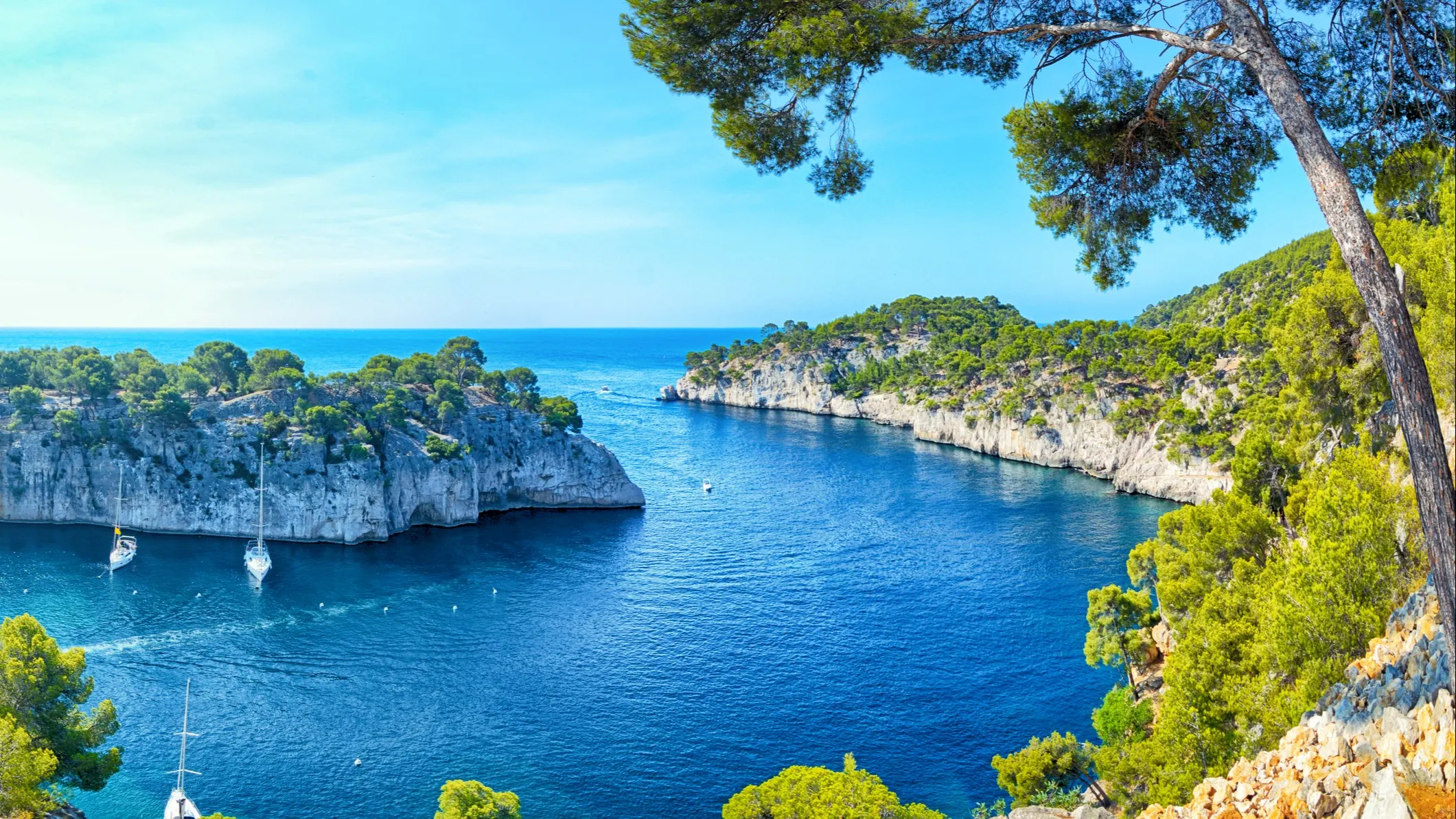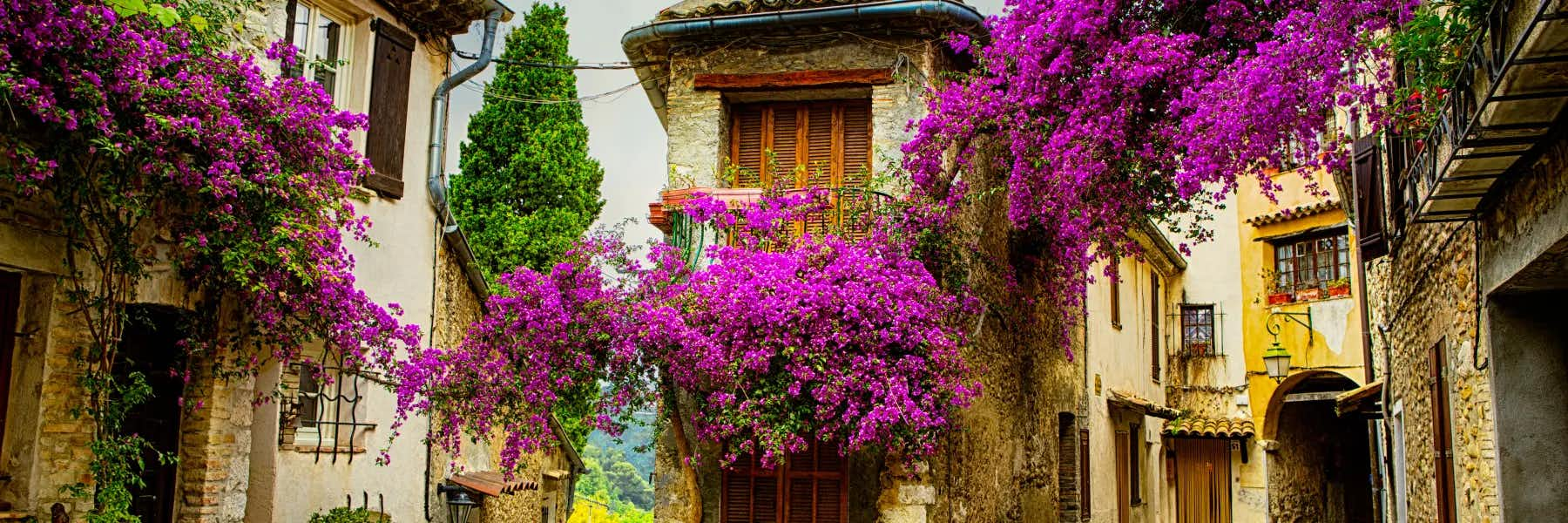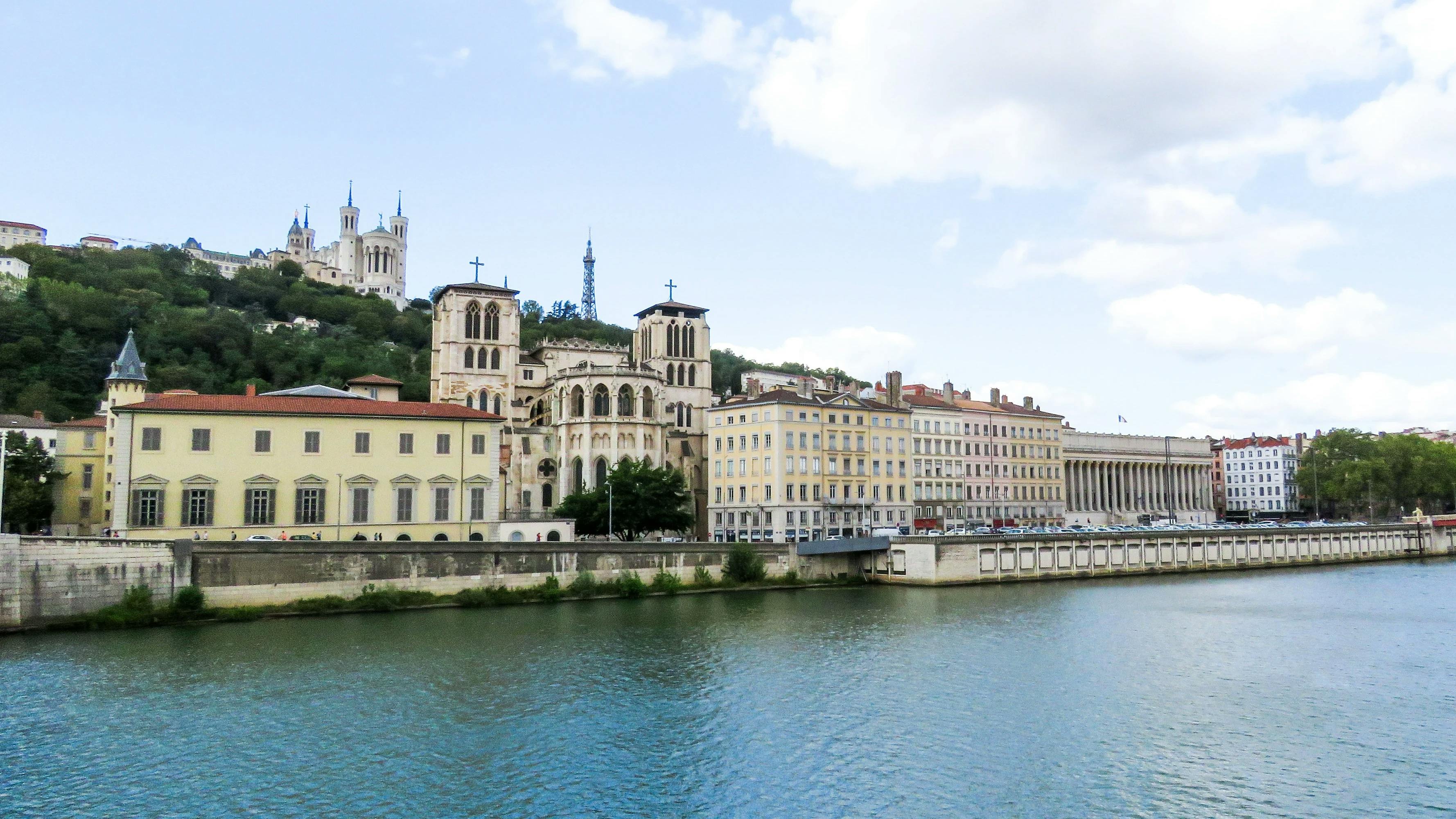With an easygoing, gourmet lifestyle, excellent and affordable healthcare, and a cost of living that won’t break the bank, France is one of the top choices in Europe for retirement. If you’re looking for a rich, cultural adventure—focused on the culinary arts and an emphasis on leisure that is second to none—look no further than La Belle France.
Sharing a border with eight different neighbors, there’s always something new to discover in the hexagon—the name given to the country by the French due to its oft-remarked geometric shape.
Whether you decide to set up shop in the sun-kissed region of southern France known as Provence or in a fairy tale, half-timbered village in Alsace near the German border, the options for exploration are endless…. as are the opportunities to taste some of the most amazing food the world over.
Although living in Paris may be out of the price range for many retirees, the rest of the country is surprisingly affordable—and thanks to France’s low cost and efficient rail service, the City of Light is just a train ride away.
Get Your Free France Report Here
Get Your Free France Report Here
Learn more about France and other countries in our daily postcard e-letter. Simply enter your email address below and we’ll send you a FREE REPORT: A Taste of France: All the Ingredients for the Good Life.

By submitting your email address, you will receive a free subscription to IL Postcards, Overseas Dream Home, The Untourist Daily and special offers from International Living and our affiliates. You can unsubscribe at any time, and we encourage you to read more about our Privacy Policy.
Preparing to Retire in France
Before making the move, retirees should consider several factors to ensure a smooth transition. One of the best ways to prepare is to take a scouting trip to experience daily life in different regions firsthand. France offers a wide variety of settings, from bustling cities to small villages, and it’s important to decide whether you prefer an active urban lifestyle or the tranquility of the countryside.
Housing is another key factor to consider. Many retirees choose to rent before they buy, allowing them time to explore different areas before committing to a permanent home. Renting provides flexibility, especially for those still adjusting to the cultural and bureaucratic aspects of living in France.
Understanding the visa and residency requirements is also essential. France does not offer a specific retirement visa, but U.S. and Canadian citizens planning to stay longer than 90 days must apply for a Long Stay Visa (VLS-TS). Applicants must demonstrate sufficient financial means, with the minimum required income currently set at €696 per month for singles and €1,036 per month for couples. Once in France, retirees can transition to a residency permit by proving they have stable and legal means of support.
Another key aspect of planning is setting up banking and financial arrangements. Many expats find it useful to open a Wise or Revolut account before arrival, as this allows them to transfer money easily while waiting to set up a local French bank account. Once settled, opening a French bank account becomes easier and is often necessary for setting up utilities, rental agreements, and healthcare enrollment.
The cost of living varies by region, and while France remains affordable compared to the U.S., daily expenses can differ significantly. Retirees should carefully budget for rent, utilities, groceries, healthcare, and transportation costs. Those who prefer a car-free lifestyle should prioritize locations with robust public transportation options.
By carefully considering these factors, retirees can make informed decisions and ensure a smooth transition to their new life in France.
Living Costs
A couple can live comfortably on $2,100 to $2,800 in France. There are some regions (Alsace, Brittany, Normandy) where you may be able to go even lower on your budget, but it’s a good idea to research those areas carefully. While real estate prices may be considerably cheaper, it’s important to check for the availability of social activities, community services, and healthcare.
Conversely, you’ll need more than $2,800 a month if you plan on living in Paris—unless you buy an apartment outright and use the remaining budget to live on.
Otherwise, you can play around a lot with budget figures when it comes to housing. Housing costs are, on average, 34% less than in the United States. To find the real deals, look towards the inland areas of the south of France, or in Occitanie, and also in the southwestern corner known as the Dordogne. Homes in this region average anywhere from under $200,000 to around $320,000. On the higher end, you’ll have a large villa with a sizable plot of land and, quite possibly, a swimming pool.
Rentals around the country vary greatly, and it’s best to do research on websites like Seloger and Le Bon Coin.
Property taxes are exceedingly low when compared to the United States, at about 1/10 of what we pay back home.
The average electricity bill is about $955 per year, and about a third of all French households use natural gas—with an annual cost of about $933 per year. Water is controlled by several private companies; water bills are around $33 to $43 per month.
Depending on shopping habits, a couple can expect to spend about $600 a month on groceries, and eating out can be done on the cheap. If you skip Michelin-star restaurants, you can find gourmet bistro meals for about $32 per person. These will be three courses, excluding wine.
France offers a lot of interesting telecommunication packages. You can bundle your cell phone service, cable TV, and Wi-Fi Internet for $32 a month. The French company called Free provides this kind of package.
At the time of this writing, filling up the tank of a compact car costs around $66, and car insurance and maintenance come to around $75 a month.
Get Your Free France Report Here
Get Your Free France Report Here
Learn more about France and other countries in our daily postcard e-letter. Simply enter your email address below and we’ll send you a FREE REPORT: A Taste of France: All the Ingredients for the Good Life.

By submitting your email address, you will receive a free subscription to IL Postcards, Overseas Dream Home, The Untourist Daily and special offers from International Living and our affiliates. You can unsubscribe at any time, and we encourage you to read more about our Privacy Policy.
Healthcare
The French healthcare system accepts everyone, with no restrictions regarding age nor pre-existing conditions, and allows you to see any doctor, dentist, or specialist you like anywhere in the country.
All you need to access French healthcare is a Long Stay Visa, and France must be your primary residence for six months of the year. You’re eligible to sign up for French healthcare after three months of living in the country.
Once in the healthcare system, you’re entitled to receive 70% to 80% off healthcare prices, which are already incredibly low when compared to the U.S. A visit to the doctor costs $27, and with the 70% reimbursement, that visit comes out to be around $9. A visit to see a specialist is about $55, and with the current conversion rate, it will cost you $16.50 out-of-pocket once you’re enrolled in the system. Likewise, prescription drugs are 70% to 100% covered.
You can visit both private or public healthcare providers. Public healthcare is already quite exceptional, so it’s a personal choice whether you’d like to seek out private care. Most people opt to purchase what’s known as “top-up” insurance, which covers the 20% to 30% not reimbursed on the system.
Top-up insurance starts at $32 per month and is highly recommended—especially for dental procedures like crowns, bridges, and implants, which don’t have the same caps on fees as other medical procedures.
You’ll pay a very small percentage of your income into the French healthcare system annually. This is especially attractive for retirees because France can’t include any of your passive income in this calculation—i.e., Social Security payments or pensions. This is thanks to a tax treaty with the United States, which forbids double taxation.
As an average figure, if you had $36,000 in active income to declare, you would pay around $1,800 a year for healthcare.
Safety
France is a very safe country with no right to bear arms and very strict gun restrictions. As in any major city, keep a close watch on your belongings on public transportation and, depending on the location, be careful as a woman alone venturing out at night.
Although violent crime is rare, use common sense and avoid neighborhoods with a bad reputation in large cities like Paris, Marseille, and Lyon. Certain neighborhoods outside of the main center of town are known for drug trafficking. Outside of petty theft and home burglaries that generally happen over the long vacation periods in France, most of the crimes you will hear about are turf wars between drug dealers in pockets outside the city.
Home-invasion style robberies are not a concern in France, but investing in an alarm system for when you leave on vacation is a good idea.
Popular Destinations
There are so many wonderful places to live in France that it can be hard to narrow it down to just one. This is where your retirement checklist “must-haves” and a scouting trip can be handy.
It’s also important to note that although many French—contrary to popular belief—will try to speak some English with you, it’s recommended to choose an area where you’ll have a welcoming expat group. They can help with your transition and be a valuable resource for getting set up in retirement.
The South of France
The south of France is a wide swath of territory, encompassing everything from the swanky French Riviera to colorful, Spanish-style towns like Arles and Perpignan in Occitanie—formerly known as the Languedoc.
While prices on the Côte d’Azur won’t suffice for every budget, there are some surprisingly interesting exceptions. For example, in Nice, one of the most sought-after and expat-friendly cities along the coast, getting a two-bedroom, furnished rental for $1200 to $1500 a month is still possible. This is a relatively expensive proposition for the French, but it remains attractive given where prices in the U.S stand in comparable cities.
If you go thirty minutes inland, you’ll find some great deals on rentals and homes to purchase away from the coastline. The inland villages of Provence are a good 15% to 20% cheaper, if not more in some areas. All around the south, you’ll find the best weather in all of France (outside of Corsica) and a laid-back, Mediterranean lifestyle that focuses on fine living and outdoor activities. This is the most popular spot in all of France to retire, so you can expect a wealth of services and extensive medical facilities for retirees.
Lyon
Situated in the Rhône River valley, Lyon is a food-lover’s paradise and the gastronomic capital of France. The city is situated along two Rivers, the Rhône and the Saone, with a mash-up of classical-style architecture in the historic center and Italian-inspired ochre and yellow village homes along the Saone River—making Lyon one of the most beautiful cities in all of France.
There has recently been a dip in real estate prices, but expect to pay similar rates as Nice for furnished rentals. Home purchases, while not impossible, are more difficult and can be on the higher end, starting at $390,000. It’s advisable to look a little out of the city center and consider purchasing an apartment. You can still find two bedrooms for $250,000.
Lyon is full of social, cultural, and gourmet activities year-round. It has a very well-served central train station, and most expats don’t feel the need to have a car—preferring to explore their stunning city on foot or access Lyon’s cycling paths and green spaces.
The weather will be cooler than in the south of France, but many enjoy the milder temperatures in the spring and summer months.
The Dordogne
The Dordogne takes its name from the impressive Dordogne River, which winds its way past blonde-stone villages nestled cozily next to the region’s signature landmarks - a collection of breathtaking French castles.
Located in the southwest, the area can be accessed by train from Toulouse or Bordeaux, whose airports make convenient transfers from Paris.
The Dordogne is quite rural- interspersed by streams, rivers, and farmland- a completely different look and feel from the south of France, or larger cities like Lyon. Many retirees choose to settle around the central expat hub, Sarlat-la-Caneda, which has a thriving North American expat community.
If you’re a fan of nature, long gourmet lunches along the river, and spending your afternoons visiting some of France's most beautiful villages, then the Dordogne might be for you.
The region has colder and rainier winter and spring months than the south, but makes up for it with extremely attractive real estate prices. It’s possible to find two-bedroom homes with a sizable garden for $220,000 or under.
Due to its rural nature, the Dordogne is not as well served by public transportation, and retirees will need access to a car. The area does have many cycling routes for traveling to nearby villages.
France is a magical country that captivates millions of travelers every year. Some fall in love with the gourmet lifestyle, which focuses on getting the most out of life… preferably with a good bottle of Burgundy or Bordeaux… and never leave.
While the land of haute cuisine and high fashion may appear to be out of range for many retirement budgets, we’re happy to report that isn’t the case. With housing prices a good 34% less than those in the US, excellent and very low-cost healthcare, and food prices that haven’t gone through the roof, retiring in France can cost considerably less than back home.
Other cost-saving destinations include Brittany, Alsace, and Normandy, where housing prices and daily expenses are generally lower than in the rest of the country. These regions offer a rich cultural history, scenic beauty, and easy access to major cities without the high price tag associated with more well-known retirement destinations.
If you’re interested in exploring a possible retirement in France, International Living has a wealth of informational articles ranging from top expat destinations to the visa application process to help make your dreams of living la belle vie (the good life) come true.
Get Your Free France Report Here
Get Your Free France Report Here
Learn more about France and other countries in our daily postcard e-letter. Simply enter your email address below and we’ll send you a FREE REPORT: A Taste of France: All the Ingredients for the Good Life.

By submitting your email address, you will receive a free subscription to IL Postcards, Overseas Dream Home, The Untourist Daily and special offers from International Living and our affiliates. You can unsubscribe at any time, and we encourage you to read more about our Privacy Policy.
5 Reasons Why You Should Retire in France
By Stewart Richmond
There are many reasons you should consider a move to France: The beaches of Normandy, the stunning Paris cityscape, the resorts of the Atlantic and Mediterranean, but France is more than just a pretty place to live.

France is also, undeniably, a pretty place to live. Living here, I've also discovered it’s also a highly practical place to retire to… Here are my top five reasons why:
1. Low Cost of Living
While many items are a similar price to items in North America, many are much, much cheaper. France has a thousand different cheeses, and they start off at a tiny $1.15 for a home-brand camembert or brie. You can try a different cheese every day of the year without breaking the bank.
Wine, beer, and spirits are ridiculously cheap. You will find a red or white from the hundreds in the local supermarket that suits your individual palate for around $3.50. You can get a supermarket baguette for 40 cents or an artisan baguette from the boulangerie for $1.15. French supermarkets are not allowed to throw food away, so there are always plenty of bargains.
2. Cheap Real Estate
Sure, if you want to live in the 6th Arrondissement in the center of Paris or in a Mediterranean resort town, it’s going to cost. But there are hundreds of properties in beautiful country towns and villages with all the work done at very affordable prices. You can get a small townhouse for as little as $34,400, or less if you want a project to fix up. For $92,000, you can get a terrific house with a garden. Imagine selling your house back home, buying a wonderful home in France for under $100,000, and living like royalty on the balance.
3. Cheap and Easy Travel and Connectivity
France has a brilliant rail system, and there are terrific discounts for people over 60. Its biggest international airport, Charles de Gaulle, has a TGV (very fast train) station underneath the terminal so you get off the train, go up the escalator and you’re in the airport terminal.
It is also well placed for easy travel to the U.K. and the rest of Europe. There is free movement between France and Spain, so go for a drive. It's the same for Belgium, Switzerland, Germany, and Italy. There are also lots of regional airports which have connecting flights around the world. My wife recently got a return flight from Limoges (Limousin) to London Stansted for under $30. Roads are good, and while tolls on the big motorways can be expensive, the routes are well maintained.
France also has terrific broadband and an ongoing fiber roll-out with a choice of excellent mobile phone providers. Free Wifi is available in most places, especially the more popular tourist areas.
4. Healthcare
The health system in France is the best in the world (WHO rankings). A visit to the doctor costs about $30, and after three months residency, you can get 70% back. Hospitals are terrific and specialist fees are fixed by the Government. Prescription medicine is less than half the price you pay in the U.S. If you do develop a long-term illness such as cancer, diabetes, liver or kidney failure, then medication is free.
5. You Can Drink Water Straight From the Tap
One of the first questions at any International Living event is: “Can you drink the water?” France has a remarkable setup for ensuring water is potable straight from the tap. Every city, town, village, and hamlet is connected up. You will never have to buy bottled water again.
Bonus: France has a polite, friendly population with a good sense of humor. The French are welcoming, and if you learn a few words and phrases, they will go out of their way to help you.
We've recently moved after spending three years in a stunning maison de maitre in Bellac, a small community in the Limousin. We’re now living in the Aude, part of the Languedoc- Roussillon, where you can find a home within easy reach of Mediterranean beaches, historic towns to explore, a couple of hours' drive to ski slopes, and a short run into Spain for some tapas. I've seen terrific village houses for under $105,000.
Decide on your own criteria, and you may have more than the five I've listed, but before you decide where to live the dream overseas, check out France.
Get Your Free France Report Here
Get Your Free France Report Here
Learn more about France and other countries in our daily postcard e-letter. Simply enter your email address below and we’ll send you a FREE REPORT: A Taste of France: All the Ingredients for the Good Life.

By submitting your email address, you will receive a free subscription to IL Postcards, Overseas Dream Home, The Untourist Daily and special offers from International Living and our affiliates. You can unsubscribe at any time, and we encourage you to read more about our Privacy Policy.
Common FAQ’s About Retiring in France
Can an American retire in France?
Yes, an American can retire in France. For visits longer than 90 days, you must apply for a visa de séjour temporaire (a residence visa). You cannot apply while on vacation in France; you must apply for this residency visa from your nearest French consulate in the U.S.
How much do you need to retire in France?
This depends on your own lifestyle and where you take up residence, but living well is very affordable in all parts of France. Two people can run an apartment while living well in France for between $2,100 and $2,500 per month.
Is France a good place to retire?
France is a very good place to retire. France finished in the top 10 of our 2020 Annual Global Retirement Index. The reasons for France being such a good place to retire include a low cost of living and the excellent healthcare on offer.
What are the best cities and towns to retire to in France?
Five of the best cities and towns to retire in France include:
Lyon
Montpellier
Sarlat-la-Canéda
Bordeaux
Pau
Full article here: 5 Best Cities and Towns to Live and Retire in France
Get Your Free France Report Here
Get Your Free France Report Here
Learn more about France and other countries in our daily postcard e-letter. Simply enter your email address below and we’ll send you a FREE REPORT: A Taste of France: All the Ingredients for the Good Life.

By submitting your email address, you will receive a free subscription to IL Postcards, Overseas Dream Home, The Untourist Daily and special offers from International Living and our affiliates. You can unsubscribe at any time, and we encourage you to read more about our Privacy Policy.















